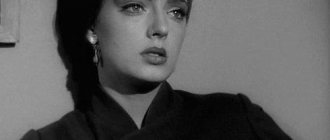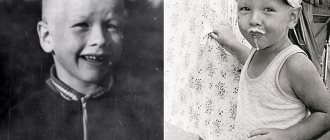Biography of Kantemir Balagov
Kantemir Balagov, a young director from Kabardino-Balkaria, after the release of his debut film “Tightness”, was called the heir to the traditions of world cinema masters such as Lars von Trier and the Dardenne brothers. Balagov’s films have received international recognition, and in 2020 his drama “Dylda” was nominated for an Oscar film award.
In the photo: Kantemir Balagov
Kantemir Balagov: “It was important for me to speak out”
The young talented director KANTEMIR BALAGOV presented his full-length debut film “Tightness” at the Novosibirsk cinema “Pobeda” on July 27. The screening and discussion of the film, which won prestigious prizes at Cannes and Kinotavr, aroused keen public interest. Judging by the reviews, “Tightness” left no one indifferent. This family drama against the backdrop of intercultural differences delighted some, forced others into heated discussions, and overwhelmed others with emotions. But the director himself captivated everyone with his openness and readiness for dialogue. “KS” presents to the readers the director’s most striking answers.
— Cantemir, how did the name of the film come about?
— When work on the script was coming to an end, there was no title yet. In fact, naming a film is very difficult. We settled on “Crowdedness” primarily because for me personally, this is a film about inner crampedness, when a person inside does not have enough space for another, even the closest person, when everything is filled only with oneself. Then new meanings appeared: territorial tightness, geographic, ties of national and family traditions, and so on. When we decided on the name, the shape began to line up, including the 4:3 frame proportions. In this format, the characters in the frame should stand as close to each other as possible, which also creates crowding.
— In the color scheme of the film, bright blue constantly appears, there are also noticeable red, yellow, and green accents. What does it mean?
— When the cameraman and I were developing the visual component, we wanted the film to have color drama. We decided that each hero should have its own color. The main character, her space and her boyfriend are blue colors. Family - warm orange, brown, ocher. Brother and his bride are green. Red is the color of anxiety. Thus, the conflict between Ilana and her family is perceived even subconsciously, through the visuals.
— How did you, still a very young man, manage to convey the atmosphere of the 90s so accurately?
— The film takes place in 1998, I was seven years old then, and I remember something, it was a special time for me. I took something from my own experience, from my parents’ photo archive. In addition, we were lucky with the house in which we filmed - in this very lived-in, real space, we only changed some color schemes. We created other locations - a stadium, a gas station, a buyer's office, and so on - based on documents.
— Is the story of the kidnapping of young people from Jewish families in Kabardino-Balkaria based on real events?
— Yes, the very fact of the abduction and some features of family relationships are based on a real story. Both of these peoples - Jews and Kabardians - are too fixated on preserving their roots and elevate traditions to a cult. And some young people may even suffer from this. It seems to me that these peoples have something in common. Although in general this is a universal story that could happen in any national environment.
— The film has very interesting cinematography. Almost everything was taken by hand?
— To be honest, I’m not yet close to all sorts of cranes and rails, all this outer shell that turns the visual image into some kind of product. There's a tactility to a handheld camera that's so lacking in cinema these days. This is very close to my heart.
— What helped you so tenderly, admiringly, convey the girl’s experiences?
— For most of my life after my parents’ divorce, I lived with my mother. Maybe that's the problem, I don't know. Alexander Nikolaevich Sokurov told us that when working on a character, you need to maintain a neutral gender attitude. A director should be neither male nor female, but should remain somewhere in the middle. When I worked on this film, I tried to do just that.
— What was the original purpose of shooting this film?
— This is definitely not marketing, because no one is interested in Nalchik in 1998. The goal in itself to get to festivals is also not, because you can immediately see when a director makes a festival film (and usually such films do not get to festivals). Actually I just wanted to speak out.
— What did your teacher Alexander Nikolaevich Sokurov say about the documentary video of Chechen executions included in the film?
— Representatives of the Cannes Film Festival asked us to reduce this execution. I was against it, and Alexander Nikolaevich supported me in this regard. As a director and teacher, he does not prohibit violence, he prohibits the glorification of violence. Besides, look: there are no close-ups, no savoring, everything is deliberately so washed out and everything is so dark that practically nothing is visible. This is a real recording of those years, which is still publicly available on the Internet.
— Which day of filming was the most difficult?
- First! This is the first film, the first day of shooting, there are 40 people in front of you, and you need to do something with them. I started intuitively, then I pulled myself together, and everything went like clockwork. Filming often takes place in a completely different order than the events in the film. Surprisingly, we started filming right from the first scene.
— What will your second film be about?
— This is a story about a young girl who returns from the front to her native village. After the victory, there was a feeling that people would become better people, life would get better, but this front-line woman was faced with unexpected obstacles. Some motifs were taken from Alexievich, her book “War Doesn’t Have a Woman’s Face.” But this is not a film adaptation at all.
— Historical plot again?
— I asked myself this question: why am I not interested in modernity, what’s wrong with me? Honestly, I can’t say. Human experience is limited by the time of life, and literature and art help expand these boundaries. Reading Shalamov, Solzhenitsyn, Alexievich, you little by little understand what exists beyond your perception. I hope this experience will help me somehow.
— What are your favorite cinemas?
— As a child, I had my favorite cinema “Druzhba” in my district of Aleksandrovka in Nalchik. Unfortunately, it is now a completely abandoned building that is about to collapse. And among the modern ones - this is my first time in Novosibirsk, and I was surprised by your cinema and the wonderful audience that understands and loves cinema.
The editors of KS are open to your news. Send your messages at any time by email or through our groups on Facebook and VKontakte
Subscribe to the “Continent of Siberia” channel on Telegram to be the first to learn about key events in the business and government circles of the region.
Found an error in the text? Select it and press Ctrl + Enter
COMMENT
SUBSCRIBE
early years
Kantemir Balagov was born in the capital of Kabardino-Balkaria, the city of Nalchik, on July 28, 1991. After graduating from school No. 11, Kantemir could not decide on his choice of profession and therefore followed the advice of his father, who insisted on studying at the Faculty of Economics of the Stavropol branch of the Institute of the Ministry of Internal Affairs.
Kantemir Balagov
Kantemir's father was an entrepreneur and dreamed that his son would receive an economic education and become his assistant, but after the first year the young man dropped out of college and returned to Nalchik.
In search of a calling, Balagov studied electronic music, tried to become a DJ, but failed. Unexpectedly for himself, he became interested in photography, and when he could not achieve success in this field, he began to develop a YouTube project - to shoot a series about the morals and lifestyle of Nalchik youth, about guys like him who are forced to face problems every day , inevitably drawing them into a cycle of violence.
Kantemir Balagov at work
For a year, Kantemir filmed the series, and when he learned that director Alexander Sokurov, whose name is on the list of the hundred best directors in the world, had opened a creative workshop at Kabardino-Balkarian State University, he decided to send the famous director a link to his creation. Alexander Nikolaevich answered Balagov - it turned out that he had already seen several episodes - and invited him to his lectures. For some time, Kantemir was a free student of the master, and then he entered the Faculty of Art to complete a full course of study and become a director.
Director Alexander Sokurov
During his studies, he made several short films, including the documentary “Andryukha” and the biographical film “The First Me.” The hero of the film “Andryukha” is a young resident of the city of Nalchik, who, despite mental disability, is trying to earn money for his drinking mother and sister. “First Me” - Kantemir Balagov In the film “First Me,” the young director told the story of his growing up, and, as in the first film, did not skimp on shocking details and disturbing provincial landscapes.
Childhood and youth
Kantemir Arturovich Balagov was born on July 28, 1991 in an ordinary average family that had nothing to do with the world of cinema. The future director spent his childhood in the city of Nalchik. The father wanted to raise his son to be a real man, so he enrolled him in various sports sections, including:
- judo;
- American football;
- rugby.
But the teenager did not have a passion for these sports, so he did not stay in them for more than two months. As Kantemir himself recalls, he did not feel any inner return or interest in sports, so he simply stopped attending training.
As a teenager, he was very reserved, tried to avoid places where there were a lot of people, and did not like noisy parties. He felt much more comfortable and calm in the library, although he did not feel any particular desire to read.
For a long time, Kantemir could not decide on his choice of profession; he simply did not know what exactly he wanted to do. Parents came to the rescue, dreaming that their son would receive a good lucrative profession so that in the future he could stand confidently on his feet. They advised him to enter the Faculty of Economics, and at the same time study law.
Balagov himself was inclined towards linguistic education, as he liked to study languages, especially English. But my parents were categorically against this choice. They considered this profession to be low-prestige and low-paid. Moreover, the young man admits that his dad still encourages him to go into business.
As a teenager, he asked his parents to give him a camera. My father bought it, thinking that he planned to photograph weddings and other festive events for a fee. But the young man liked artistic photographs more. He always focused on the work of the great Henri Cartier-Bresson. But the works of Eldar Bogunov helped him finally choose his future profession.
After this, the young man began filming short videos and posting them on the popular video hosting site YouTube. The debut teaser received about 10 thousand views in the first 24 hours, which became an absolute record for the small town where the young man lived. Almost immediately, he filmed and posted new videos, which came to the attention of Alexander Sokurov. After which the master invited him to study in his workshop.
"Tightness"
In 2020, a graduate of the Faculty of Arts of Kabardino-Balkarian University presented his first full-length film, “Tightness,” filmed with the support of the Alexander Sokurov Foundation. In the spring of 2017, Russian media announced that a young director from Nalchik had conquered the jury of the Cannes Film Festival.
Photos from the filming of the film "Tightness"
In his work, Balagov told the story of a Jewish family from his hometown, focusing on political, national and social problems, which, almost 30 years after the events described in the film, remain relevant. The director's gaze is completely devoid of bias, he is as dispassionate and cold as the scalpel of a surgeon bending over the space of the North Caucasus, as if over the body of a patient.
Still from the film "Tightness"
The film was definitely warmly received by film critics, who could not help but note the unusual techniques that Balagov used. Thus, in one of the frames of the film, the viewer sees on the wall of a modestly furnished, typically Soviet apartment a poster of the Hollywood film “Titanic”, which suggests the inevitability of a disaster, and the heroes of the film speak in a low voice, which makes the audience listen to them, involuntarily concentrating on the on-screen action . “Crowdedness” - trailer Nalchik of the 90s is shown by Balagov, if not hell, then definitely a branch of it, where strange personalities in tracksuits roam the dark streets like ghosts, and young people become drunkards and use drugs. The apogee of the terrible story of the kidnapping of a Jewish youth and his bride was the terrible footage used by Balagov of the execution of Russian soldiers by Chechens.
Kantemir Balagov gives an interview
The role of the sister of the kidnapped young man was played by actress Daria Zhovner, her heroine desperately rebels against the order prevailing in her family, but turns out to be powerless in the fight against the internal ghetto.
Daria Zhovner and Kantemir Balagov
In Cannes, they appreciated the message of the young director, his thirst for freedom and the idea of the importance of liberation from stereotypes that, like many years ago, still exist in Russian society. The film, called the main event in Russian cultural life, also starred Olga Dragunova, Nazir Zhukov, Mikhail Amburg and Veniamin Katz.
The creative team of the film “Tightness” at the Cannes Film Festival
The film was awarded a prize by the International Federation of Film Press, named the main favorite of the Un Certain Regard program and was highly appreciated by foreign film critics.
Kantemir Balagov: “I want to remain who I am”
Twenty-seven-year-old Kantemir Balagov was born in Nalchik, shot short videos and Internet series with friends and, by the will of fate, ended up in the third year of Alexander Nikolaevich Sokurov’s only director’s class at Kabardino-Balkarian University.
In 2020, he debuted with his first full-length film, “Tightness,” in the “Un Certain Regard” program at the Cannes Film Festival and won the prestigious FIPRESCI prize. A year later, he became a member of the jury of this section, and with his second big film “Dilda” he received in “Un Certain Regard”, in addition to another FIPRESCI award, a prize for best director.
After the out-of-competition screening at Kinotavr, a series of premieres began. On the evening of June 21, immediately after St. Petersburg and Moscow, the film was seen by viewers of the Novosibirsk culture and recreation center "Pobeda". However, this is only the beginning - the film expects a wide Russian and international release. Kantemir told Kommersant how easy it is to remain yourself after achieving world fame.
— Cantemir, thank you for the wonderful film. As far as I know, you now live in Moscow. Who do you feel like today, a guy from Nalchik, a Muscovite or a man of the world?
— More likely, a guy from Nalchik, because in my behavior I’m still from there, and I can’t say that I don’t like it, on the contrary, it fuels me. The fact that I live in Moscow does not mean that I automatically became a Muscovite or plunged headlong into the party scene. I want to remain who I am.
— Taking on a big post-war drama after “Tightness,” which was rooted in your personal experience, did you feel like you were losing something?
- No, I am still a citizen of Russia, and the history of the war, the history of the blockade is also my history, I have the right to reflect on this matter. Talk about how only Leningraders can talk about the blockade seems to me somewhat colonial in spirit. Moreover, even if it happens in my life that I make a film with Western actors, this will not mean that I will stop being a guy from Nalchik. It seems to me that a special Caucasian intonation will be felt in all my works. I really want to hope that it won’t be erased or eroded. We all come from childhood, and it’s stupid to refuse this.
— How do they watch “Dylda” in the capital, Novosibirsk, and foreign audiences? Do they cry and laugh in the same places, what questions do they ask?
— For the most part, everyone reacted the same way, some like the film more, others less. It was about the same with “Tightness”. Apparently, strong human emotions are understandable to everyone. However, there was still one unexpected moment. At both Cannes screenings, audiences laughed when the wounded in the hospital said of a little boy: “How does he know what dogs look like, they ate everyone.” Probably, not everyone in Europe understands the historical context of this scene and realizes the true scale of the blockade tragedy. In Russia, of course, they don’t laugh at this... But in general, everything is the same, and the questions are mostly similar. Of course, it was nice to read positive reviews in the French press: judging by the opinions of critics, the film was understood, it turned out to be universal, and this is important.
— How was “Tsnota” received in your small homeland and how did the distribution of “Dylda” start?
— As elsewhere, in the North Caucasus, different people received “Crowdedness” in different ways, but the number of positive reviews turned out to be even higher than I expected; many young people watched the film. The release of “Dylda” has just begun, the premiere took place on June 20, so it’s too early to talk about the audience’s reaction. Of course, it is very important to me how they react to the film at home.
— What qualities do you need to have to successfully start in the film industry?
“I’ll probably say banal things, but this is perseverance and faith in your plan.” But at the same time, it’s worth listening, and don’t be a stubborn ass: sometimes an outside perspective can be useful for a film. But again, a lot depends on luck. If Alexander Nikolaevich Sokurov had not been in my life, if he had not helped with the launch of Tesnota, it is unknown where I would be now.
— Why did you decide to include screenings in our city in your busy premiere schedule?
— When I came to Pobeda with my debut two years ago, then an unknown and not very in-demand director, I was struck by the warm welcome and attention of the public. I was personally hooked by this, and I went to Novosibirsk with “Dylda” without hesitation.
Anna Ogorodnikova
"Dylda"
In 2020, Cantemir completed work on his second feature film. In the war drama "Dylda" he described the events that took place in Leningrad in the post-war period. The heroine of the story, played by actress Victoria Miroshnichenko, is raising a son and working in a hospital, but the arrival of a front-line friend, the heroine Vasilisa Perelygina, makes us look at women who went through the war from a new perspective.
Still from the film "Dilda"
According to Kantemir, the source of inspiration was an interview with the Belarusian writer, Nobel Prize winner Svetlana Alexievich, who touched on topics that are not usually discussed. Like Alexievich, the director showed the feminine, shocking face of war. Winners or losers, asks Balagov, who described the difficult fates of two friends. “Dilda” - trailer As in the first film, Cantemir used non-standard techniques, for example, each heroine had her own color, which serves as a kind of indicator of her internal state and attitude to the world around her. Konstantin Balakirev, Timofey Glazkov and Ksenia Kutepova also played in the drama. The young director tried, in his words, to teach the actors not to play their characters, but to revive them, to try not to seem like the heroes of the film, but to actually be them.
When working on the film “Dilda,” the young director had to study a lot of documentary materials, review the chronicles of that time and rework photo archives. In addition to the books of Svetlana Alexievich, he read the autobiographical works of Lev Razumovsky. The director also reviewed several times the famous Dardenne brothers’ film “Rosetta,” which amazed him during his studies, from which he learned some stylistic techniques.
Kantemir Balagov on the set of the film “Dylda”
The total time the director spent working on his second film was more than two years, and the color saturation that so amazed the jury at the Cannes Film Festival was the result of a careful study of the painting features of the Dutch masters.
Kantemir Balagov at the Cannes Film Festival 2019
In 2020, the film by a young director from Kabardino-Balkaria was awarded the prize of the International Federation of Film Press and the award for best director in the Un Certain Regard program at the Cannes Film Festival in 2020.
Kantemir Balagov and his “Tightness”
I remember someone in the comments was surprised that there were as many as three reviews on blogs for the film “After”, but not a single one for some deeper film. So I’m surprised why Dudya’s interview with Creed immediately appeared here, but no one has written about Balagov yet? If you imagine them on a scale that measures depth, patriotism and talent, then both will be located at the edges - Egor at the minimum point, and Kantemir at the maximum.
I assume that the interview with Creed will be remembered by many for its sterile pop phrases, while the interview with Balagov will be remembered for at least partly sincere answers and will be divided into quotes.
— How do you feel about Vladimir Putin? “Seeing what’s happening and how long it’s all dragged on, it’s rather negative. — Which is better: Oscar or Cannes? “It’s better to go down in history.”
I was surprised by how reverently he treats his master, Sokurov. - You are 27, what should you do at 40 to tell yourself that you have justified all the advances and surprises? When will you be able to tell yourself this? — When Alexander Nikolaevich Sokurov says that I made a good story.
This man and his devastating answers made a colossal impression, the likes of which no other issue from Dud has ever produced. I was very intrigued by what kind of movie a person of such depth was making, so I immediately went to watch “Tightness.” The film turned out to be just as devastating and made you look at yourself from the outside, just like its author. Plot: Members of the Jewish community in Kabardino-Balkaria have their son and bride kidnapped. The family is trying to cope with this in conditions of tightness in their relationships, tightness within the framework of the traditions of the “tribe”, within the framework of interethnic issues.
- *in a broken voice* Mom, do you have no one else to love?
The film is not easy to watch. If your parents were authoritarian, overprotective, and disregarded your personal boundaries, you will find it all the more difficult to watch. This is my case, and this is such a sore spot that in those scenes when the mother grabbed her children with her hands and covered her son’s mouth (it’s hard to call it a hug, it’s more of a gesture of forcibly holding her close to her, dictated by a panicky fear of being left alone), I caught myself at the thought that I would push away such a mother with her hands, even if I had to use physical force. Her behavior is so believable and recognizable to the lives of real people that, hand on heart, I can assume: if I were in the place of the heroine-daughter, I would do just that. Because such “hugs” are a metaphor for the attitude towards your children in general, and I would not have had (and in many ways already do not have, the film touched on the personal) the strength to endure such a relationship in which the mother behaves like a lost and angry child , and you are perceived as a personal thing.
- Everything has already been decided for you. What else is needed?
For myself, I came to the following conclusion: watching such films is like eating healthy but tasteless food from time to time. This kind of movie gets at complex and painful emotions, honestly shows you the wrong side and pokes you in your sore spots. It allows you to grow, but this growth occurs through pain, so you often don’t see such pictures. And at the same time, I don’t want to completely deny myself the pleasure of remembering what it’s like when not only the characters speak in a film, but also the camera, the light, and the frame as a whole, and some sounds carry more meaning than the phrases underneath them , and how much can be said with just one look.
In the comments on YouTube several times I came across the opinion that Yuri Dud specially released an interview with Balagov immediately after the release with Creed, so that we could compare the two types of people in contrast. If this is true, then he succeeded, and no one has probably teased Creed like this before.
I published a post and sat crying, how honest, poignant and ruthless the movie really is.
Criticism
The director forbade showing the film “Tightness” in his city, Nalchik, which is not only the place where the film takes place, but also its main character. He explained his decision by the negative attitude of the city authorities, who called his picture “a weak and ugly attempt to look down on one’s culture and a denial of one’s own national identity.” City officials called Balagov's film an outright lie, but expressed hope that the young director would one day reconsider his views.
Balagov at the "Person of the Year" award
The footage of the killing of Russian soldiers by Chechen militants, which the director used in the film, also caused a lot of controversy. Many religious and public figures called Balagov’s reception speculation on the grief and suffering of people. In an interview, the director says that he does not see anything reprehensible in his action; According to him, at that time everyone watched such tapes.
Young and talented director Kantemir Balagov
It is believed that audiences going to the cinema are placed in a situation in which they must unconditionally trust the director, and most of them called Balagov's reception a betrayal of trust. The demonstration of footage of the massacre, in which one can see despair in the eyes of the victims, horrified people, and those who lost relatives during the Chechen war condemned Balagov, who used footage of the murder for personal gain. vDud: Kantemir Balagov No less heated debate was caused by the second painting by Kantemir Balagov, which, like the first, was recognized by the Western public. The director took the reviews calmly, the authors of which called the film “Dylda” a story about same-sex love, but noted that such a view of his film is conceptually erroneous. Some film experts, indeed, talk about unconventional love, however, according to other critics, there is no love at all in Balagov’s film, and Leningrad was shown as a city of the dead.
Balagov's films cause a lot of controversy among critics, but do not leave anyone indifferent
Thus, in particular, Marina Alexandrova says that the director portrayed women returning from the front as ugly, sexless and sterile creatures with a crippled psyche, capable only of exploiting their own kind and satisfying basic instincts. By showing people who returned from the front as half-mad, mentally inadequate and incapable of feelings, Balagov, according to Alexandrova, pronounces a verdict not only on Russia’s past, but also on the present and future.
Writer and publicist Alla Bossart called the painting “Bullet” strange, bewitching and swooningly beautiful.
Balagov Kantemir Arturovich
Russian film director. Winner of the GQ Russia award in the “Discovery of the Year” category. Winner of the Cannes Film Festival in the category Best Director for the film "Big".
Kantemir Balagov was born on July 28, 1991 in the city of Nalchik, Kabardino-Balkarian Republic. Since childhood, I watched a lot of mainstream cinema, and at the age of eighteen I began creating short videos. Together with friends I shot an Internet series with ten-minute episodes. After school No. 11, he graduated from Kabardino-Balkarian University, the workshop of Alexander Sokurov.
During his studies, he made several short films, including the documentary “Andryukha” and the biographical film “The First Me.” The hero of the film “Andryukha” is a young resident of the city of Nalchik, who, despite mental disability, is trying to earn money for his drinking mother and sister.
Some of Balagov's short films were shown at the 67th Film Festival in the Swiss city of Locarno. In 2020, he made his debut as a director with the feature film “Tightness” in the “Un Certain Regard” program at the Cannes Film Festival, where he received the Fipressi Prize. In 2017, he was awarded the GQ Russia Prize in the “Discovery of the Year” category.
In 2020, Cantemir completed work on his second feature film. In the military drama "Dylda" he described the events that took place in St. Petersburg in the post-war period. The heroine of the story, played by actress Victoria Miroshnichenko, is raising a son and working in a hospital, but the arrival of a front-line friend, the heroine Vasilisa Perelygina, makes us look at women who went through the war from a new perspective.
As in the first film, Balagov used non-standard techniques. For example, each heroine had her own color, which served as a kind of indicator of her internal state and attitude to the world around her. Konstantin Balakirev, Timofey Glazkov and Ksenia Kutepova also played in the drama. The young director tried to teach the actors not to play their characters, but to revive them, to try not to seem like heroes of the film, but to actually be them.
On May 24, 2020, Kantemir Balagov received the Cannes Film Festival prize for best director for the film “Dylda,” which was presented in the “Un Certain Regard” program.
In the summer of 2020, Kantemir became a guest of Yuri Dud in his original YouTube show “vDud”. The director spoke about his path to success, about his vision of modern cinema and answered questions about what techniques he prefers to use when working on his films.
Balagov’s film “Dylda” won the Grand Prix at the XIII International Film Festival named after Andrei Tarkovsky “Mirror” on June 21, 2020 The director himself was unable to attend the ceremony, but sent a video message, thanking the audience for recognizing his work.
At the Stockholm Film Festival on November 15, 2019, Cantemir’s film “Dilda” received a special award “for an exceptionally beautiful and well-made film.” The director was presented with a figurine made according to a sketch by the world famous Chinese artist Ai Weiwei.
Awards of Kantemir Balagov
Awards of Kantemir Balagov
2019 - Special Award at the Stockholm Film Festival for the film "Dylda" - for an exceptionally beautiful and well-made film. The director was presented with a figurine made according to a sketch by the world famous Chinese artist Ai Weiwei.
2019 — Cannes Film Festival Prize for Best Director for the film “Dilda”, which was presented in the “Un Certain Regard” program.
2019 — Grand Prix at the XIII International Film Festival named after Andrei Tarkovsky “Mirror” for the film “Dylda”.
2017 — GQ Russia Award in the “Discovery of the Year” category.
2017 — Fipressi Prize at the Cannes Film Festival for the film “Tightness” in the “Un Certain Regard” program.
Creativity of Kantemir Balagov
Creativity of Kantemir Balagov
Filmography of Kantemir Balagov
2013 - Andryukha 2013 - Still young 2014 - She's waiting 2014 - First me 2020 - Sofichka 2020 - Crowded 2020 - Dilda
16.11.2019
Personal life of Kantemir Balagov
Balagov, who became famous overnight, hid the details of his personal life, but could not help but answer Yuri Dud’s question and said that his heart was conquered by Kira Kovalenko, whom he met while studying on Alexander Sokurov’s course.
Kantemir Balagov visiting Yuri Dud
The beginning of a romantic relationship was the collaboration of young directors in the film “Sofichka”. As Kantemir puts it, he and his chosen one feed each other emotionally.
Kira Kovalenko - Cantemir's girlfriend
The director is a Kabardian by nationality and professes Islam. Cantemir calls himself a believer, but not religious; Despite his unconditional faith in the Almighty, he does not always manage to observe religious traditions. The young director spoke about how he, whose parents were not believers, came to God in the short film “The First Me.”
As Balagov says, if it were not for the meeting with Alexander Sokurov, he would forever remain an uneducated person. Before he began to study with the master, he did not like to read at all, and in his cultural baggage there were only a few books.
Kantemir Balagov in 2020
Cantemir also notes that in his youth he was not interested in cinema and had no idea about the art of cinema, which he considers an important circumstance, an undoubted advantage, thanks to which, according to him, he was able to preserve his originality.
Biography[ | ]
Born on July 28, 1991 in Nalchik[1][2]. Mother is a chemistry and biology teacher who works as a head teacher at school, father is a businessman[3].
Since childhood, I have been interested in watching mainstream cinema; at the age of 18-19, I started making small videos myself, and then, together with my friends, I made an Internet series with 10-minute episodes. In search of creative self-realization, I wrote to director Alexander Sokurov, who led a creative workshop at Kabardino-Balkarian University. He was immediately enrolled in the third year and subsequently successfully completed his studies[4][3].
During his studies, he made several feature films and documentaries[5]. The first short film was released in 2014[6]. Some of Balagov's short films were shown at the 67th[fr] Locarno Film Festival[7]. In 2020, he acted as one of the screenwriters for the film “Sofichka” by his classmate Kira Kovalenko[6], from whom, according to him, he learned a lot[8].
In 2020, he made his debut as a director with the feature film “Tightness” in the “Un Certain Regard” program at the 70th Cannes Film Festival, where he received the [fr] FIPRESCI prize[9][10]. In 2020, he was awarded the GQ Russia award in the Discovery of the Year category[11][12].
In 2020, at the 72nd Cannes Film Festival, Balagov again participated in the Un Certain Regard program with his new film “Dylda”, where he received the prize for best director, as well as the FIPRESCI prize[13][14]. In the same year, Balagov’s film was nominated from Russia for the Oscar in the category “Best Foreign Language Film”[15], was shortlisted for the award[16], but was ultimately not nominated.
Kantemir Balagov now
In the summer of 2020, Kantemir became a guest of Yuri Dud in his original YouTube show “vDud”. The director spoke about his path to success, his vision of modern cinema and answered questions about what techniques he prefers to use when working on his films.
Kantemir Balagov - director of modern times
The director spoke about Svetlana Alexievich as one of the most talented authors. According to Kantemir, Alexievich struck him with the feeling of fatal loneliness and hopelessness that permeated her books. The director also said that he has boundless respect and admiration for Chulpan Khamatova, both as an actress, and as a citizen, and, of course, as a woman.
In September 2020, the film “Dylda” was shown at the 44th Toronto Film Festival as part of the “Contemporary World Cinema” program. In the fall of the same year, the media notified Russians that the film “Dilda” had been nominated for the Oscar film award. The film was subsequently shortlisted for the Best Foreign Language Film category.
A still from the military drama “Dylda”
In a conversation with film critic Anton Dolin, Kantemir spoke about the desire to create an animated film dedicated to the tragedy in Beslan, playful, but honest and reliably reproducing the events of 2004. Balagov said that he has no plans to leave for America yet, although, according to him, he regularly receives offers from Hollywood.
Director of the film “Tightness” Kantemir Balagov: “I thought there would be more negative reaction”
This festival at one time noticed and supported the young Steven Spielberg and Spike Lee, Pedro Almodóvar and Christopher Nolan, and many other current giants of world cinema.
As previously reported, the 47th annual New Directors/New Films (ND/NF) screening of films by emerging filmmakers, co-organized by the Film Society of Lincoln Center (FSLC) and the Museum of Modern Art, opens in New York City on Wednesday, March 28. (MoMA).
The program will feature full-length and short films from 29 countries, both fiction and documentaries. Ten of them are North American premieres. 13 films were directed by women directors. 14 films are the debuts of their directors.
Among the most anticipated films is the film “Closeness” by Russian debutant director Kantemir Balagov. Its world premiere took place last year at the Cannes Film Festival in the Un Certain Regard program, where it received the FIPRESCI Award.
The film was shown at many film festivals around the world, including the prestigious screening in Telluride (USA). Some Russian film critics consider “Tightness” by 26-year-old Kabardian Balagov, a student of Alexander Sokurov, the main discovery of last year.
Nalchik, 1998. A young Jewish couple is preparing for their wedding, but they are kidnapped by criminals for ransom. Parents are frantically looking for money. And the main character Ilana, whose brother was kidnapped, has another problem: her mother forbids her to date a Kabardian guy...
According to the organizers of the show in New York, which will last until April 8, Kantemir Balagov was invited to the festival. But as the director himself said, he, unfortunately, cannot come, as he is busy working on his new project.
Via Skype from Moscow, Kantemir Balagov answered questions about the film “Tightness” and about his new work.
Almost a year has passed since the Cannes premiere of Tightness. Premieres, prizes, trips, reviews, audience responses. A lot happened during this period of time. Do you feel like a different person? I hope no. I hope I remain the same. I just gained new experience. At first I liked the festival bustle and routine, but then all this rigmarole became boring, and I began to refuse trips. We need to concentrate on work. We just finished the script for the new film, and that's why I couldn't come to New York.
Since you yourself are talking about a new project... I read somewhere that it is about the Leningrad blockade, is that true? Yes, this is 1945, Leningrad after the siege.
Is this an adaptation of someone's book? No, this is an original script. We were inspired by Svetlana Alexievich’s book “War Doesn’t Have a Woman’s Face.” But it turned out to be an original story.
Why are you interested in this topic? Our film is not about the blockade, but about two women who return to Leningrad to try to return to a peaceful course and live as they lived before the war. The city is taken as a background, the main thing is the stories of these two women.
Are you worried about having to prove that the success of your first film was not an accident? Andrei Zvyagintsev once told me about this psychological state when, after the success of “Return,” he was worried whether he would be able to make his second film at the proper level, without lowering the bar. Yes, there are worries and concerns. I talked to some people about this. They called it second movie syndrome. I'm trying to somehow abstract myself from this. It’s as if “Tightness” never happened, and I’m filming my debut again.
Returning to “Tightness”... It is unclear whether Americans will understand everything in this picture. North Caucasus, Kabardino-Balkaria, Nalchik city. A complex interweaving of interethnic problems. You probably made the right decision at the very beginning to introduce yourself, the time and place of action in a voice-over. Did you add this information to the finished film? Yes. Alexander Nikolaevich (Sokurov) proposed this idea, and I agreed. We showed a rough cut to selectors of some European festivals, and they expressed concern that audiences in their countries might not understand where and what was happening. There is also a dramatic, artistic moment. The author directly addresses the audience, thereby indicating a different, more confidential, personal tone of the story.
“I don’t know what happened to these people afterwards.” This is what you say as the author at the very end. You really don't know this? Not all of the story is based on real events. The kidnapping of a Jewish young couple for ransom, the relationships in their families, all this is woven from personal experience and historical facts. This is not a documentary narrative. At some point, the heroes take you and lead you wherever they see fit. The author needs to have the courage to step back and give the characters their space.
Were you familiar with the life of the Jewish community in Nalchik before the film? Yes, I had a relationship with a Jewish girl as a teenager. I attended various family events, birthdays, and understood something about the structure of the Jewish family, about the matriarchy reigning in it.
Are you sure this is matriarchy and not patriarchy? Now I’m not talking about Mountain Jews, but about Ashkenazi Jews, European Jews. At some point, the girl’s mother forbade her to date me because we were “different tribes.” This is what her mother tells Ilana in the film.
In the image of Kabardian Zalim, Ilana’s boyfriend, did you use your experience? Yes, partly. He mumbles something, just like me.
Crowding has a literal meaning, but there is also a more general one. People of different nationalities cannot get along in the same territory, they are cramped, someone has to leave. How did you create the image of cramped space? We used the 4:3 film format, which emphasizes close-ups and allows you to peer into the faces of the characters. The cameraman and I did the “pre-joke”, preparatory shooting, and even at this stage we tried to convey the psychological state of cramped conditions.
So is everything pessimistic in life? Are there any Jews left in Nalchik? Many left - some to Israel, some to America, some to the central part of Russia. There are very few Jews left. But both Kabardians and Russians are leaving. There is no confidence in the future, there is no ground under our feet.
Why do people feel uncomfortable living there? Hierarchy rules in the North Caucasus, everyone has their own. If you are not part of some family clan, life is very difficult. And it’s difficult to be creative. All key positions are occupied by older people who look only to the past, protect traditions and do not want anything new. Hence the stagnation.
You personally are lucky to have a mentor. Alexander Sokurov opened a creative workshop in Nalchik, at the Kabardino-Balkarian State University (KBSU), where you studied. People are still surprised that he came to Nalchik to teach. There is no cinematography here at all. I am very grateful to Alexander Nikolaevich for everything, as well as to the rector of KBSU Barasbi Karamurzov.
Your film is very realistic. And in the episode of the brutal murder of captured Russian soldiers in Dagestan by Chechen militants, even, I would say, it is too realistic - to the point of shock. After all, you are using the so-called snuff, that is, filming a real murder. I know that during this episode some viewers leave the audience. Did you have any doubts about whether you should show it? I myself watched this video when I was a teenager; it was going around school. We were 13-14 years old, and the boys and I watched this tape several times. They thought and argued about death, murder. I wanted to convey the mood of the time when the atmosphere in the North Caucasus became tougher, and people in Nalchik were afraid that the Chechen war would spread to us. In addition, for me, the artistic world and the documentary world are two parallel realities, and it was interesting for me to push them together.
In the credits you thank your father, Artur Balagov. For what? Because he told me the story of the kidnapping of a Jewish couple. Of course, we changed a lot in it.
The actors are memorable. Daria Zhovner is especially good as Ilana. What criteria did you use for casting? We basically adhered to the principle of identity. Jews are played by Jews, Kabardians are played by Kabardians. Well, 90 percent of this principle was observed. Daria is, of course, a talented actress, and the camera also loves her, she is very cinematic. I hope she has a great future.
How was the film received in the North Caucasus? Fifty fifty. There were heated discussions. I expected there to be more negative reaction.
Last year you visited America for the first time. What are your impressions? I was brought up on American culture - cinema, music. I used to even dream of living in America. He loved watching sports – NHL and NBA matches. Now there is less time for this.
They write that you are interested in video games. Yes, I sometimes play late in the evening. If I don’t let my head relax, I’ll burn out in a week.
And what's your favorite game? "Overwatch" ["Overwatch" is a computer game in the genre of first-person shooter, developed by Blizzard Entertainment]. This is such a fascinating shoot-out.
runyweb.com










